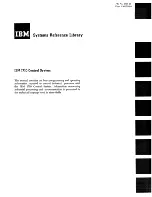
FEBC Operation
Page 5
Relay Output Bypass
When switch #8 is selected at power-up, the air-gap relay drivers will be disabled. Analog outputs will continue to
operate.
3.4 Input Line Voltage
The FEBC is strappable for 115V and 230V 50/60Hz operation. A 1 Amp Slo-blo line fuse is attached to the PCB.
The PCB is fabricated with the 115V operation enabled. To convert to 230V operation, cut both traces at E1 and E2,
then solder a wire jumper at E3. Use a wire gage of #24 or larger for this jumper.
4.0 DEVICES SUPPORTED
The FEBC will support any analog control device which will accept a 0V to 12 Vdc (adjustable maximum) input
source. The maximum amount of current supplied will not exceed 20mA and therefore the number of analog loads
must take into account line impedance and output loading.
The FEBC has been tested for use with the following electronic ballasts:
ADVANCE MARK VII - Cat. No. RDC-140-TP (single)
ADVANCE MARK VII - Cat. No. RDC-240-TP (dual)
The FEBC is also capable of driving other analog loads. However, the, product is not tested with anything other than
the above ballasts.
5.0 CALIBRATION
The FEBC may be adjusted to meet voltage requirements for up to 12Vdc full scale.
5.1 Calibration Procedure
A. Insure that there is nothing connected to the analog Outputs of the FEBC which may be damaged by voltages
up to 15Vdc.
B. Set the option dipswitch to CALIBRATE function. This is switch position #7 On S4.
C. Supply power to the FEBC. If power was already on when the dipswitch was changed, cycle power off and on
again to put FEBC into calibrate mode.. All analog outputs go to full levels and the relays Wilt turn on in this
mode.
D. Connect a voltmeter between the AN1 terminal and any RET terminal on connector P4. Adjust Potentiometer
R19 for the desired full-scalce output voltage.
For MARK VII ballasts the Output setting should be approximately 9.0 Vdc.
Summary of Contents for FEBC
Page 8: ...FEBC Operation Page 8...
Page 10: ......




























